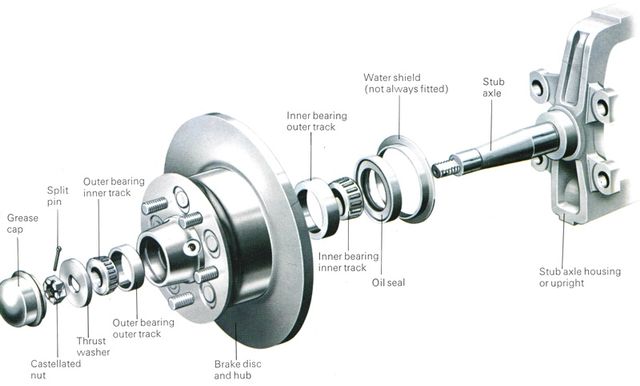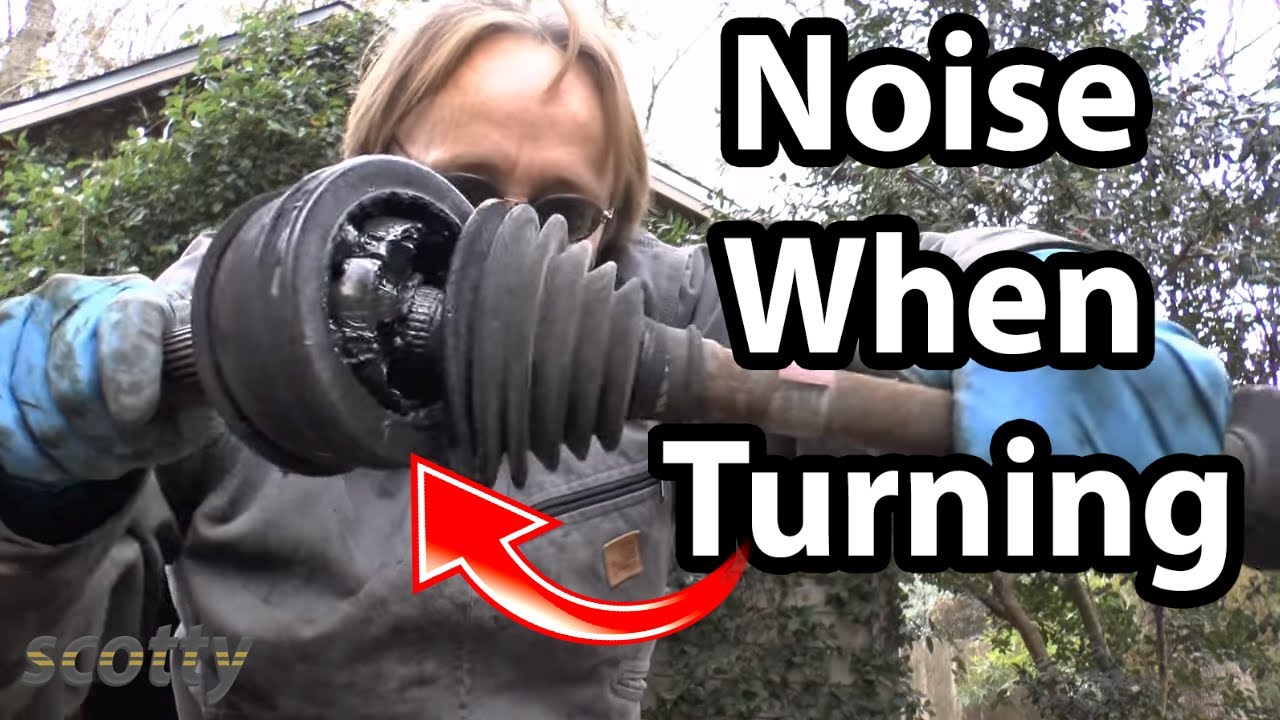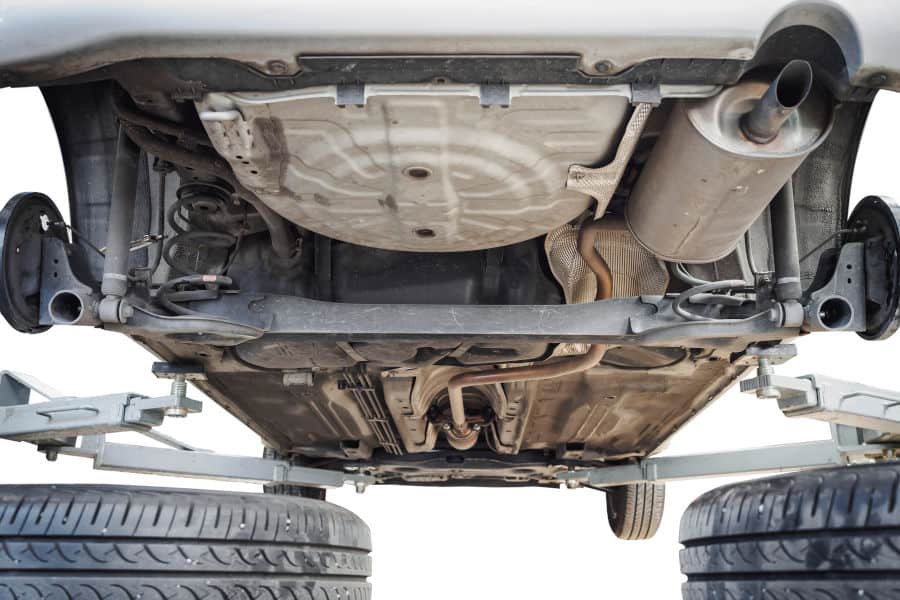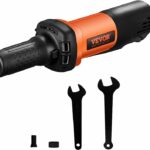Bearings are components used in wheels to reduce friction, decrease wheel wear and provide precise wheel rotation. Wheel bearings can be found on vehicles such as cars, trucks, trailers and bicycles. They consist of two metal rings (inner and outer) with ball bearings between them that help the wheel rotate smoothly.
The inner ring is secured to the axle while the outer ring is connected to the wheel hub. In addition, a lubricant like grease or oil helps ensure smooth movement of the bearing balls along their raceways inside each ring. As a result, bearings support heavy loads while also allowing for higher speeds than possible without them due to reduced rolling resistance as well as increased stability when turning corners or maneuvering around obstacles.
Bearings are essential components of wheels and help to reduce friction by allowing the wheel to rotate freely. Wheel bearings work by providing a smooth surface for the axle or shaft to turn on, which helps keep the entire system running smoothly. Bearings in wheels also provide stability and help maintain control when turning corners.
Without functioning bearings, vehicles would be unable to move very far as they would not be able to turn properly or bear any significant load. Investing in quality wheel bearings is important for safe driving conditions and can also improve fuel efficiency over time due to less drag from friction caused by worn-out parts.
Animation on How Car Wheel Bearings Work
How Will I Know If My Wheel Bearings are Bad?
You may hear a grinding or humming noise coming from the wheel when driving, or feel excessive vibration in the steering wheel. Additionally, if you move the tire back and forth there should be no play; if there is, this indicates that your bearings are worn out.
Can I Drive My Car With a Wheel Bearing Problem?
No, it is not safe to drive a car with a wheel bearing problem. If the wheel bearing becomes too worn or damaged, it can cause difficulty in steering and create an unsafe driving situation.
What Happens When Wheel Bearings Fail?
When wheel bearings fail, they can cause the wheel to become loose, which can result in increased tire wear and vibration. Additionally, it can cause steering instability or wobbling of the vehicle while driving.
How Much Does It Cost to Replace Wheel Bearing?
The cost to replace a wheel bearing can vary greatly depending on the year, make, and model of your vehicle. Generally speaking, a front wheel bearing replacement costs between $100 and $400 per bearing. Labor costs will also be additional, usually ranging from $50 to $150 per hour.
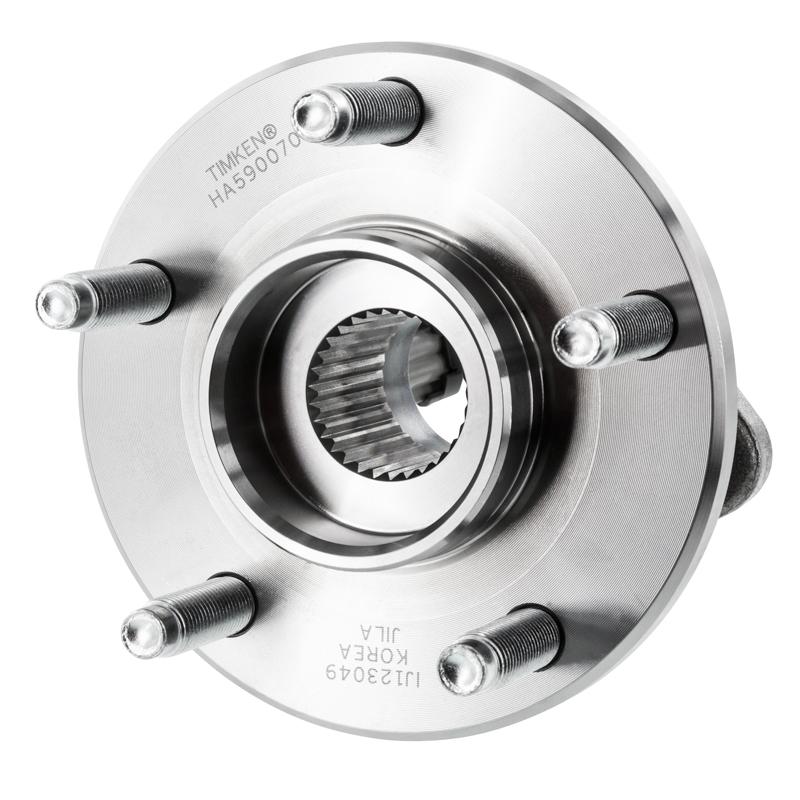
Credit: zzperformance.com
Average Life of Wheel Bearings
Wheel bearings are essential components of a car’s suspension system and play an important role in keeping the wheels rolling smoothly. On average, wheel bearings have a lifespan of about 80,000-100,000 miles before they need to be replaced. However, this number can vary significantly depending on how you maintain your vehicle and the quality of the parts used when replacing them.
Proper maintenance is key for extending their life as even small things like regular lubrication can help keep them lasting longer.
What Happens If a Wheel Bearing Fails
When a wheel bearing fails, it can cause several problems. The most obvious symptom is an increase in noise coming from the wheels as they rotate. If left unrepaired, further damage can occur to other components of the axle, such as seals and bearings.
Additionally, failure of the bearing can lead to increased friction on the axle which will decrease fuel efficiency and eventually result in complete failure of the vehicle’s drivetrain system. It is important that if you notice any strange noises or vibrations coming from your vehicle’s wheels to have them checked immediately by a professional mechanic so that any potential issues with your wheel bearings can be addressed before more serious damage occurs.
- Comprehensive Home Insurance from Sheilas Wheels
- What Does Insure Domestic Tranquility Mean – Unique Answer
Wheel Bearing Noise
Wheel bearing noise is a common issue with cars and can be caused by several factors. It may sound like a humming, grinding or growling sound coming from the wheel area. When this happens it’s important to have your car checked out as soon as possible because worn out bearings can cause damage to other components in the vehicle if not taken care of right away.
Conclusion
Overall, bearings in wheels are a crucial component of any wheeled vehicle. Without them, the wheels would be unable to rotate and the vehicle would not move. Bearings come in many different varieties and sizes depending on the application they are used for.
With proper maintenance and lubrication, bearings can provide years of reliable service. Knowing how to inspect and replace your wheel’s bearings is an important part of keeping your vehicle running smoothly for years to come.

